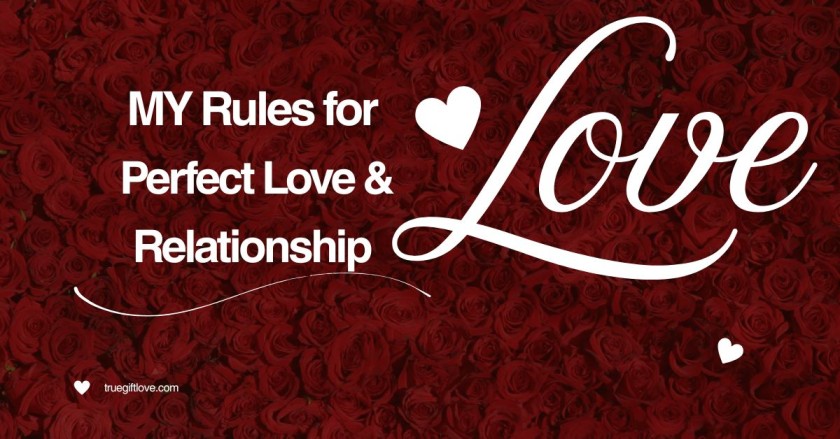Relationships are the backbone of our emotional and social well-being—not just romantic ones, but every single connection we have with others. Whether it’s your partner, family member, friend, colleague, or even a stranger, each interaction has the potential to impact your life in meaningful ways. In this article, we’ll explore powerful perspectives and emotional truths to help you become a better partner, listener, and human being. If you truly want your relationships to thrive, read these insights with an open heart.
Table of Contents
- Relationships Aren’t Just Romantic
- Shift from Control to Support
- Why Random Conversations Matter
- Don’t Jump to Fix—Listen
- Stop Invalidating Feelings
- Avoid Controlling Your Partner
- Never Cry Alone—Lean on People
- Triggers Are Opportunities for Growth
- Final Thoughts
1. Relationships Are Not About Control — Shift to Support and Trust
Many people try to lead or maintain relationships using a command-and-control mindset. We give instructions, expect things to be done, and get frustrated when they’re not. But real connection isn’t built on commands—it’s built on questions, collaboration, and support.
Instead of saying:
“This didn’t work. Fix it.”
Try:
“Last month didn’t go well. What can we do differently together?”
When you show someone that you’re in it together, they begin to trust you more. Only when trust is established does guidance or leadership feel natural—not forced. In any relationship, be the person who asks, supports, and encourages—not the one who controls.
2. Meaningless Conversations Can Lead to Meaningful Bonds
In today’s world, we’re constantly pushed to have “deep”, “meaningful”, and “valuable” conversations. However, some of the strongest friendships are formed not through profound discussions, but through casual banter and shared silliness. Think about your childhood friends—you didn’t always discuss life philosophies or serious issues. You just laughed, joked, and bonded over nonsense. And yet, those bonds became unbreakable.
So here’s a thought:
- Have more meaningless conversations.
- In those light moments, deep connections are quietly born.
3. Stop Offering Solutions—Just Listen
When someone comes to you to vent—whether it’s your partner, sibling, or friend—they don’t always want solutions. They want to be heard.
For example, if your partner is upset because plans got delayed, don’t jump into fix-it mode with:
- “What should I do? Want me to call them? Should we reschedule?”
Instead, just be present and say:
- “I get it. That sucks. I’m here for you.”
Listening without trying to fix the problem is one of the most powerful forms of emotional support.
4. Don’t Dismiss Someone’s Feelings
Saying things like:
- “That’s not a big deal.”
- “You’re overreacting.”
- “You shouldn’t feel this way.”
only invalidates the other person’s experience. You can’t decide how intense something should feel for someone else.
Instead of judging emotions, try understanding them.
Even if something seems small to you, it might be huge for them.
Respect their feelings. That’s how trust grows.
5. Ladies, Don’t Try to Control Men Emotionally
Telling your partner:
- “You always prioritize work.”
- “You have time for your friends, but not for me.”
- “Why do you even hang out with those people?”
…can come off as controlling. Instead of helping the relationship, it can push the other person away.
Share your feelings, but don’t try to dictate their choices.
Use a softer approach, rooted in understanding, not judgment.
6. Never Cry Alone—Build a Support Rule
When you’re at your lowest, don’t isolate yourself. Make a pact with your loved ones: “Whenever you need to cry, I’ll be there. And when I cry, I’ll call you.” Emotional breakdowns are not signs of weakness—they are moments that need companionship. If someone cries in front of you, don’t rush to solve anything. Just sit with them in the mud, emotionally and metaphorically. Let them feel. That’s what they need.
7. Triggers Are Teachers
If someone annoys you, triggers you, or makes you lose your temper, don’t just react—reflect.
Ask yourself:
- Why does this bother me so much?
- What past hurt or memory is connected to this?
- Is there something within me that needs healing?
Triggers are windows into unresolved parts of ourselves.
Instead of avoiding them, use them to grow. The people who trigger you may be helping you become stronger and more self-aware.
Final Thoughts
Real relationships aren’t about being perfect—they’re about being present, vulnerable, and open to growth. Whether you’re laughing about silly things or navigating tough conversations, the goal is the same: to connect deeply without trying to control or fix the other person.
So let’s make a pact:
- Listen more.
- Control less.
- Cry together.
- Talk nonsense.
- Heal from your triggers.
- And love without conditions.
Explore More Relationship Insights
If this post inspired you, don’t stop here! We’ve created more heartfelt, practical guides to help you grow and heal in love and connection. Check out the following posts next:
🔗 How to Build Better Relationships




